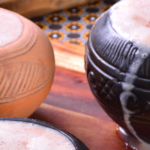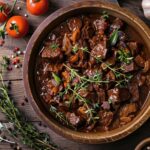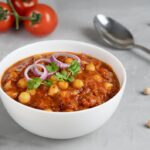Polycystic Ovary Syndrome (PCOS) affects many women worldwide, including in South Africa. Managing PCOS often involves making dietary changes to help regulate insulin levels, reduce inflammation, and support overall health. Here are 20 foods South Africans should consider avoiding if they have PCOS:
- Refined Sugars and Sweets: Foods like sugary beverages, candies, and desserts can cause blood sugar spikes, exacerbating insulin resistance common in PCOS.
- White Bread and Pastries: These high-glycemic index foods can lead to rapid increases in blood sugar and insulin levels.
- Sugary Cereals: Breakfast cereals high in sugar and low in fiber can contribute to insulin spikes and are best avoided.
- White Rice: Opt for whole grains like brown rice or quinoa instead of white rice, which can spike blood sugar levels.
- Potatoes: High in carbohydrates, potatoes can cause a quick rise in blood sugar. Sweet potatoes are a better alternative due to their lower glycemic index.
- Fried Foods: Foods like fried chicken, French fries, and other deep-fried items are high in unhealthy fats and can increase inflammation.
- Processed Meats: Sausages, hot dogs, and deli meats often contain unhealthy fats and additives that can worsen PCOS symptoms.
- Sugary Drinks: Sodas, energy drinks, and sweetened teas are high in sugar and can lead to insulin resistance.
- Fruit Juices: Even though they may seem healthy, fruit juices are high in sugar and lack the fiber that helps regulate blood sugar levels.
- Full-Fat Dairy Products: While some studies suggest dairy might help with PCOS, full-fat versions can be high in saturated fats and may worsen insulin resistance.
- Trans Fats: Found in margarine, fast food, and many baked goods, trans fats can increase inflammation and negatively affect insulin sensitivity.
- High-Fat Processed Snacks: Chips, crackers, and other processed snacks are often high in unhealthy fats and low in nutrients.
- Alcohol: Excessive alcohol consumption can affect hormone levels and exacerbate insulin resistance. Moderation is key.
- High-Sodium Foods: Processed foods high in sodium can lead to water retention and bloating, which can be uncomfortable for women with PCOS.
- White Pasta: Similar to white bread, white pasta has a high glycemic index and can spike blood sugar levels.
- High-Sugar Fruits: While fruit is generally healthy, high-sugar fruits like mangoes, grapes, and bananas can affect blood sugar levels. Opt for lower-sugar fruits like berries.
- Artificial Sweeteners: These can disrupt gut bacteria and may lead to increased sugar cravings, making them counterproductive.
- Fast Food: Often high in unhealthy fats, sugars, and sodium, fast food can exacerbate PCOS symptoms.
- Canned Soups: Many canned soups contain high levels of sodium and preservatives that can increase inflammation.
- Energy Bars: Many energy bars are high in sugar and low in fiber, making them unsuitable for managing PCOS.
Healthier Alternatives
To manage PCOS effectively, consider these healthier alternatives:
- Whole Grains: Brown rice, quinoa, and whole wheat products help maintain steady blood sugar levels.
- Fresh Vegetables: Non-starchy vegetables like spinach, kale, and broccoli are excellent for reducing inflammation.
- Lean Proteins: Opt for chicken, fish, tofu, and legumes to provide essential nutrients without unhealthy fats.
- Healthy Fats: Avocado, olive oil, and nuts provide healthy fats that support overall health.
- Low-Glycemic Fruits: Berries, apples, and pears are better fruit choices for those with PCOS.
By making mindful dietary choices, South African women with PCOS can better manage their symptoms and improve their overall health. It’s always best to consult with a healthcare provider or nutritionist for personalized advice.








